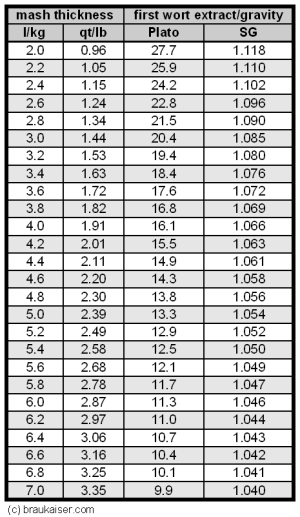I get the no boil/no hops part. I was confused about the 'continued conversion during fermentation'.
Without the boil or a mashout, the enzymes aren't denatured so they can continue breaking up the starches.
have you taken the gravity of the first running? that would allow you to determine what kind of conversion you are getting.
I have in the past. Don't have the numbers handy but it was typically around 1.100 for a 20# mash.














